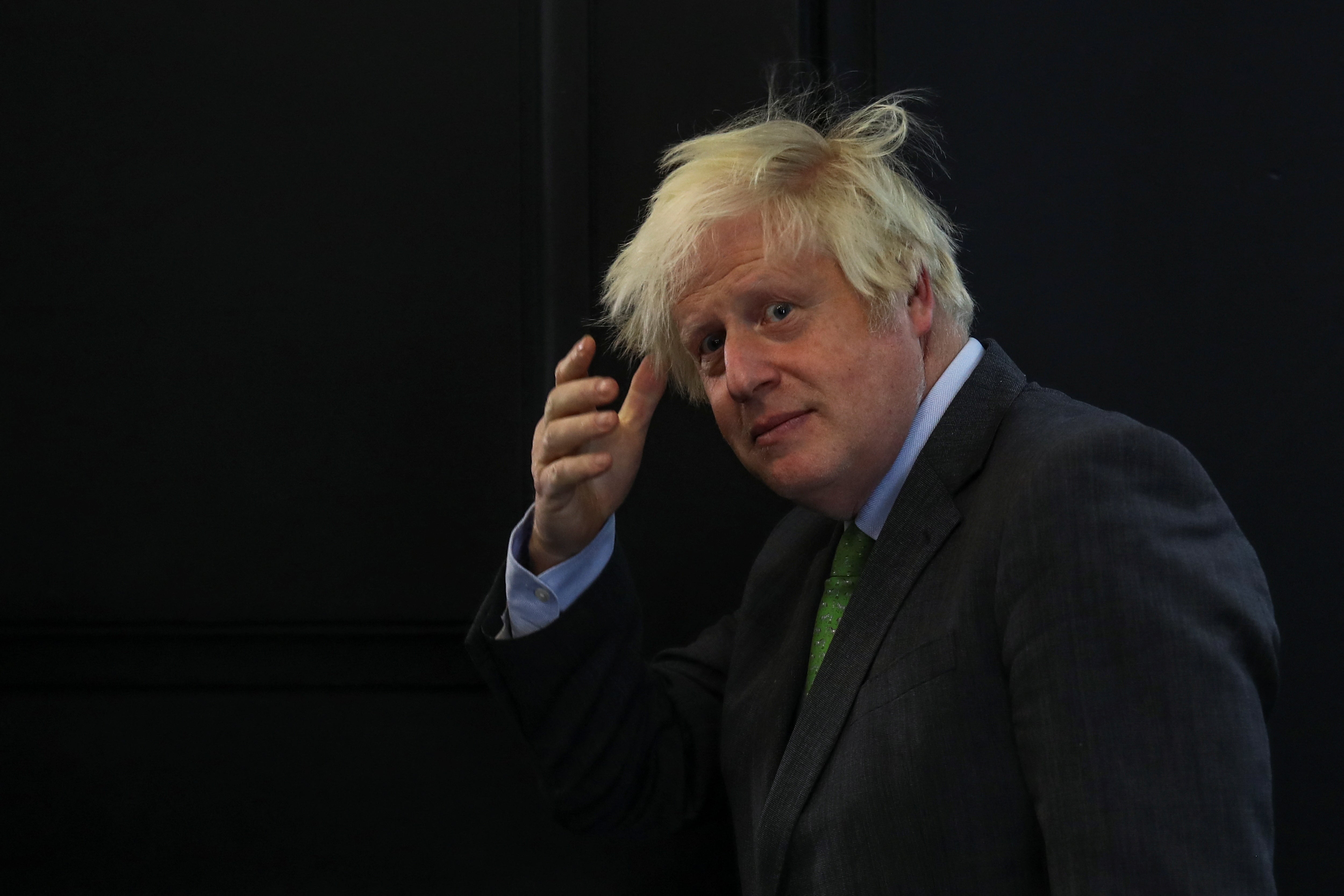If philandering Boris had been in business, he would have been finished 20 years ago
BP boss Bernard Looney had to go because he didn’t tell the whole truth about what he’d been up to. But why is it one rule for a CEO – and another for a PM, asks Chris Blackhurst


Those who worked for Bernard Looney knew to expect the first work emails of the day from 5am. He was that sort of boss, was the BP chief executive, typical of many of his kind: highly-driven, devoted to his job and to the giant oil company.
He was also extremely successful. BP profits were up, debt was down, the behemoth had reformed for the better during his four years in charge, producing a coherent plan for tackling the world’s move away from oil and gas – and leading a push for greater staff diversification.
Looney is history, though. He’s suddenly quit, probably before he was fired, for being less than frank about previous relationships with the firm’s employees. His track record as a CEO did not matter a jot; this was about standards, all to do with Looney setting an example for others.
This is the new paradigm of top-level corporate management, certainly in those companies that are publicly-listed and must answer to their shareholders, many of which are public institutions and charities. It’s ruthless and unforgiving. Cross the line and you’re out – no ifs and buts, no quarter given.
When the BP chair, Helge Lund, received an anonymous letter outlining allegations against Looney, they were taken seriously. Lund held an inquiry. No case against Looney was found. Then, early this summer, more claims were made. Looney was challenged: he had not been open the first time, so he went.
Perhaps the reason he was not forthcoming was that he wanted to protect the person concerned, that it wasn’t fair to drag their name into it. No matter. He had been economical with the truth and had no choice other than to resign.
The episode carries some echoes of what occurred at McDonald’s. In 2019, the fast food multinational sacked its former head, Steve Easterbrook, for “poor judgment” in sexting a colleague. Easterbrook told the markets he was being dismissed for no reason. He received a severance package of $105m.
McDonald’s then sued him when it learned that Easterbrook had lied about multiple affairs with co-workers. He returned the money and apologised. This year he was hit with a $400,000 fine by US regulators for lying to investors and claiming he was terminated “without cause”.
Relationships may be more acceptable between juniors, although more firms are taking a no-nonsense “forbidden” approach, across the board. At the higher reaches, they are increasingly prohibited. Employers are fearful of a legal fallout and of damaging office morale.
What did for Looney was the lack of candour. At a point when he was required to be forthcoming, he wasn’t. Whether he would have gone for actually having the relationships in the first place isn’t clear. It’s similar to Matt Hancock. He went, not because he was in a relationship with his aide, Gina Coladangelo, but because he was caught on camera breaking social-distancing rules.
Here, though, the world of the publicly-quoted corporations and politicians part. One is setting a high bar, the other is not. For the latter, we only have to look at the last prime minister-but-one.
While he was editor of The Spectator, Boris Johnson had a secret four-year affair with Petronella Wyatt, who was one of his columnists. When it became public knowledge in 2004 and Johnson was a shadow minister, he was sacked by Michael Howard, then the Tory leader, for not telling the truth about it.
As Mayor of London, Johnson had a relationship with Jennifer Arcuri, who received a financial grant from his own City Hall.
Then, as foreign secretary, he embarked on a relationship with Carrie Symonds, then working in PR for his Conservative Party. Symonds went on to become his wife.
None of this stopped Johnson from becoming prime minister. If he’d been a senior executive in a stock market listed company, his career would have not got beyond 2004 and the revelation of the affair with Wyatt.
At BP, Looney has paid a heavy price. So too – let us not forget – has BP. The company must now conduct an executive search process and Looney will be a hard act to succeed.
But standards are standards, and in boardrooms today, they are very rigorous indeed.
Join our commenting forum
Join thought-provoking conversations, follow other Independent readers and see their replies
Comments


Bookmark popover
Removed from bookmarks